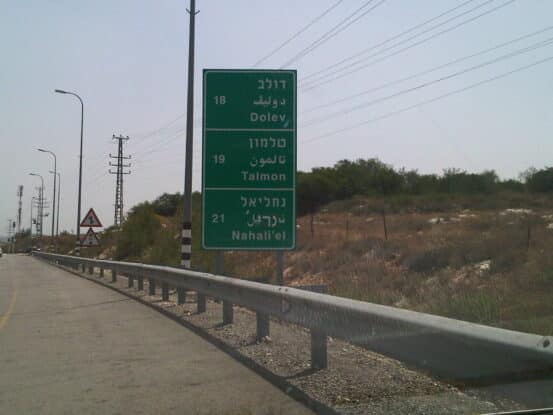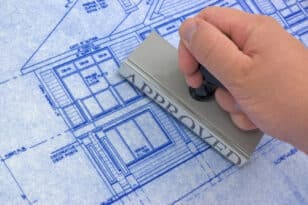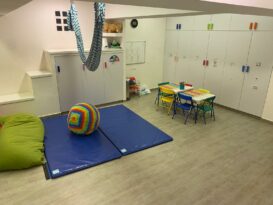On 26 November 2009 the Netanyahu administration imposed a construction freeze in Israel, the ‘building freeze’ (order no. 1653), which will be in place until 26 September 2010 . Under the provisions of the order, any new building in the West Bank or East Jerusalem whose foundations were not poured by 26 November 2009, is prohibited from carrying out any building works. The order applies equally to all properties be they private, public, residential, or commercial.
The construction freeze in Israel that forbids building activity includes land works and construction of infrastructure. However, a building whose foundation was laid prior to the onset of the building freeze, and which is allowed to complete construction, will also be able to carry out construction of infrastructure to service that property.
The purpose of this article is to focus on the legal aspects of the construction freeze in Israel however it will inevitably run into areas where pure political decisions determine legality.
Exceptions to the Prohibitions:
Despite the building freeze, building activity under the following circumstances may be permitted:
- Building is Required for Security- The order allows for the granting of a permit for premises required for the security of the public or for the protection of human life. While people who believe that the settlement of the Land of Israel in the broadest sense provides for the security of the public it would be hard to see that claim succeed given the current political environment.
- Extensions, Repairs and Corrections– On January 7, 2010, an amendment to the freeze order was signed that allows the granting of permits for building extensions, repairs and corrections to already existing buildings so long as they do not comprise an independent living unit. The amendment allowed the head of the Civil Authority (Haminhal HaEzrahi) to give written instructions as to these exceptions. In doing so, also on January 7th, 2010, he added a proviso that anyone who requests to make use of this exception do so with “clean hands”, i.e., that the person has not begun the extension, repair or correction without a permit.
- Changing an Existing Permit – If one needs to conform an existing permit to a building whose construction is already complete and was not built in accordance with the permit he is able to submit for a change of permit to bring the already existing building into compliance. This is of utmost importance for people trying to get a tofes 4 in order to hook up to water and electricity.
- Public Infrastructure – The amendment allows for the establishment, maintenance, upgrading, and renovation of public infrastructure in existing yishuvim that is used to service areas built in accordance with the law.
- Politically Approved Projects – The government allowed for 492 units to be built in accordance with a closed list as well as a closed list of buildings for public and educational use.
- Other Projects – There are certain projects that may be approved after being taken under advisement with the Coordinator of Governmental Actions in the Territories. These categories include:
- Requests of populations with special needs
- The establishment of infrastructure for existing neighborhoods or neighborhoods that have partial buildings erected
- Commercial and Industrial buildings
- Other requested exceptions.
In order to file for an exception, one should contact the Board of Exceptions at 02-9977716 or fax to 02-9977349 or to 02-9977753. Submission of requests or queries need be made between the hours of 9:00-12:00 or 13:00-17:00 Sun-Thurs.
Building Permits:
Under the provisions of the order, even if one succeeded in procuring a building permit in prior to the construction freeze in Israel but failed to pour a foundation by November 26. 2009, the building activity is illegal, even if one builds precisely according to the approved permit plans.
In anticipation of the building freeze being lifted, the local councils (moetzot) and people waiting to be granted permits wanted to have the permit requests processed even if not issued. According to the original law, this was considered illegal activity for the moetza. However, under the terms of the amendment, the permit process can begin and get to the final stage of approval provided the petitioner submits a notice stating that he is aware that the building freeze will prohibit the building until the final permit is issued. In speaking with moetza representatives in Gush Etzion this is the policy being followed.
Enforcement of the Building Freeze:
An infraction against the order for the construction freeze in Israel is considered illegal building. The enforcement agents in the Civil Authority are entrusted with supervision of its enforcement. In discussion with relevant parties, some of these employees execute their duties with a heavy heart but feel that they are simply doing their job.
The enforcement of the buiding freeze order in Israel has received special attention in the media in order to promote the government’s agenda. As a politically motivated order, the enforcement comes with public protests. For example, in May 2010 a number of premises built in violation of the order in Hashmonaim were demolished and the public witnessed some protestors who desired to squat in the buildings.
In comparison with other building violations throughout the country, whether in Judea and Samaria or otherwise, the strict and swift demolition of violators seems to smack of discrimination. However, as the order is only in effect until Sept. 26, 2010, the usual, slower, wheels of bureaucracy would render the law as a dead letter as all violators would only be tried after the ban is lifted. Nonetheless, the swift demolition is politically controlled.
Financial Redress:
People who have suffered direct financial expense or losses can bring a claim for damages to the Board of Claims. Such claims are limited to someone who has a permit or submitted a request for permit and the moetza agreed to grant such permit (even if not issued) who suffered direct financial loss or expense because of the order or someone who entered into agreement with a provider of services (e.g. a contractor) and suffered direct financial loss and is also suing the holder of the permit.
Appellate Board:
Anyone who feels that the decision of the Civil Authority or from the Claims Board causes them harm may bring their case to the appellate board established for this purpose.
Indirect Market Effects:
As an indirect effect of the construction freeze in Israel, some areas have experienced price hikes in residential properties and rentals. As supply for an ever-growing population is put on hold, demand continues to climb.
The Future:
A client of mine who recently succeeded to prove that his foundations were poured before the freeze was ecstatic because he now can continue his building project. I commented that while I join him in his celebration, the need to “fight” to able to exercise one’s legal building rights that were temporarily suspended (without compensation) and the lack of public outcry, reflects a dangerous tendency to succumb to the legal reality.
While no one can predict the future, the political situation that gave rise to the coalition agreement for a building freeze has not substantively changed. To recall, Members of Knesset that one would normally assume would vote against the freeze were convinced that it was necessary in order to garner US support for sanctions against Iran. Hopefully, matters will be settled by September 26, 2010, and allow for renewed building in all of Israel.
This article is provided for informational purposes only. In any case of incongruence between the information stated here and the law, the controlling provisions are those as stated in the law as amended from time to time. No one should take any action based on this article without obtaining proper legal advice from an attorney familiar with the particulars of each situation.
Adv. Gad Dishi is a real estate attorney, admitted to the New York and Israeli Bar Associations, whose office is located in Alon Shevut. Comments can be addressed to Adv. Dishi at 02-9932430 or via e-mail at [email protected].
© Copyright 2020




